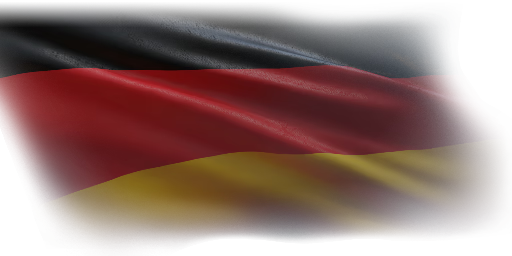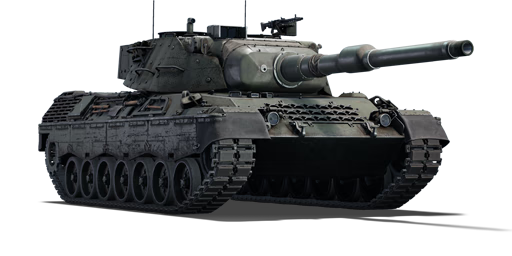

Ground Vehicles
Leopard A1A1 (L/44)
VI
Rank
AB
9.3
RB
9.3
SB
9.3
Battle rating
Germany
Research country
Medium tank
Main role

Premium vehicle
Status

FRG
Operator
General information
Where to purchase
Camouflages
Survivability and armour
Armour
front / side / back
Hull
70 / 35 / 25 mm
Turret
65 / 45 / 52 mm
Visibility
94 %
Crew
4 persons
Support systems
Mobility
Max speed
Forward
6572 km/h
Backward
2528 km/h
Power-to-weight ratio
19.617.337.430.3 hp/t
Engine power
8307341,5841,286 hp
Weight
42.4 t
Optics
Gunner
Commander
Driver
Optics zoom
4.0x–12.0x
4.0x–20.0x
—
Optical device
Armaments
120 mm Rh120 L/44 cannon
Ammunition
42 rounds
First-order
13 rounds
Reload
basic crew → aces
8.7 → 6.7 s
Vertical guidance
-9 / 15°
Turret Rotation Speed
basic crew → aces
Horizontal
16.814.331.622.8 → 2420.445.232.6 °/s
Vertical
4.93.917.111 → 75.624.515.7 °/s
| Ammunition | Type | Armor penetration (mm) at a distance: | |||||
|---|---|---|---|---|---|---|---|
| 10 m | 100 m | 500 m | 1000 m | 1500 m | 2000 m | ||
| HEATFS | 480 | 480 | 480 | 480 | 480 | 480 | |
| APFSDS | 393 | 390 | 384 | 376 | 367 | 359 | |
7.62 mm MG3A1 machine gun (coaxial)
Ammunition
4,400 rounds
Belt capacity
200 rounds
Reload
basic crew → aces
10.4 → 8 s
Fire rate
1,200 shots/min
| Belt | Belt filling | Armor penetration (mm) at a distance: | |||||
|---|---|---|---|---|---|---|---|
| 10 m | 100 m | 500 m | 1000 m | 1500 m | 2000 m | ||
| AP/T | 13 | 12 | 7 | 3 | 2 | 0 | |
7.62 mm MG3A1 machine gun
Ammunition
2,000 rounds
Belt capacity
200 rounds
Reload
basic crew → aces
10.4 → 8 s
Fire rate
1,200 shots/min
Vertical guidance
-8 / 20°
Horizontal guidance
-120 / 120°
Turret Rotation Speed
basic crew → aces
Horizontal
6353.6118.685.7 → 9076.5169.4122.4 °/s
Vertical
6350.4220.5141.1 → 9072315201.6 °/s
| Belt | Belt filling | Armor penetration (mm) at a distance: | |||||
|---|---|---|---|---|---|---|---|
| 10 m | 100 m | 500 m | 1000 m | 1500 m | 2000 m | ||
| AP/T | 13 | 12 | 7 | 3 | 2 | 0 | |
Economy
Repair cost
AB
3,145 

RB
3,217 

SB
3,976 

Crew training
10,000 

Experts
1,010,000 

Aces
2,100 

Research Aces
2,020,000 

Reward multiplier
AB / RB / SB
 2 x (150 / 200 / 240) %
2 x (150 / 200 / 240) % 
 2 x 226 %
2 x 226 % 

Premium vehicle
All modifications are unlocked
Mobility | |
|---|---|
Protection |
|---|
Firepower | ||
|---|---|---|
Rating by players
You must play more than 3 battles for the last week and more than 10 battles in a vehicle to rate it.
Like:
81
Armor protection:
Not enough ratings
Survivability:
Not enough ratings
Mobility:
Not enough ratings
Armament:
Not enough ratings
Balance:
Not enough ratings
Tips & Tricks
This space is currently empty
Do you know any interesting vehicle features?
Loading...
No articles about this vehicle yet
Become the first author and get rewards!
Write a guide, tell about interesting historical facts, make a tutorial or simply an interesting post.
No more content